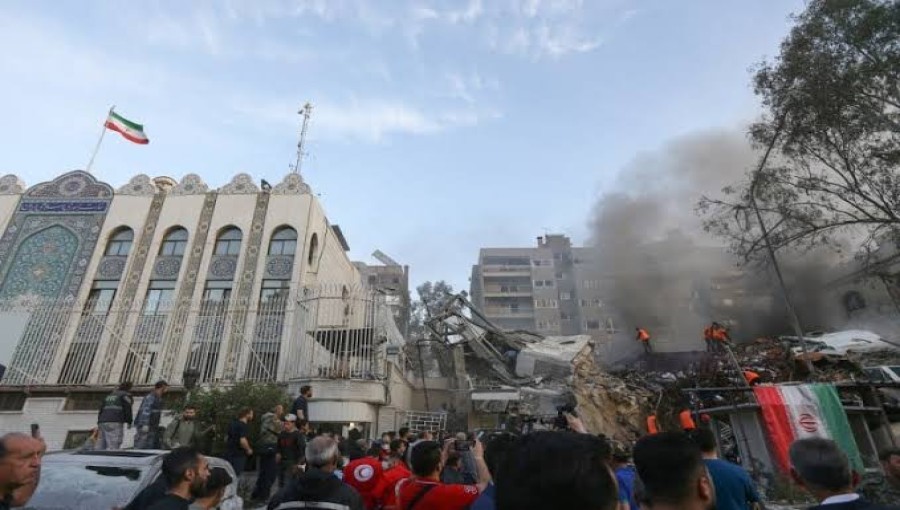In the wake of a deadly attack on the Iranian embassy in Syria, tensions between Iran and Israel have reached a critical point, sparking concerns of a potential direct confrontation between the two nations.
The attack, which claimed the lives of 11 people, including a top Iranian military officer, has drawn strong condemnation from Iranian President Ibrahim Raisi. President Raisi has vowed to retaliate against Israel, signaling a heightened risk of escalation in the region.
The Iranian ambassador to Syria echoed President Raisi's sentiments, stating that Tehran's response to the attack would be decisive and targeted at Israel. The incident has exacerbated tensions in the Middle East, with several Muslim-majority countries condemning the attack and accusing Israel of instigating chaos in the region.
While experts suggest that Iran may not be prepared for a direct military confrontation with Israel, Tehran's threat of retaliation looms large. Israeli Prime Minister Benjamin Netanyahu has responded by canceling leave for all members of the Israeli military's combat units, citing fears of an imminent attack.
Furthermore, Israel has instructed its embassies to bolster security measures amid concerns of potential reprisals. The attack has also sparked panic among Jewish communities worldwide, heightening anxieties over the prospect of escalating conflict.
In addition to the immediate threat posed by Iran, Israel remains vigilant against proxy forces supported by Tehran, including groups such as Hezbollah and the Houthis. These groups have been implicated in various attacks against Israel, raising concerns of further destabilization in the region.
Despite denials from Tehran, Israel and Western powers have long accused Iran of arming and supporting these proxy forces as part of its broader strategy to counter Western influence in the Middle East. The ongoing tensions underscore the complex geopolitical dynamics at play in the region, with both sides engaging in a high-stakes game of brinkmanship.
As the situation continues to unfold, the international community remains on edge, closely monitoring developments and urging restraint to prevent further escalation and bloodshed in the region.





























Comment: